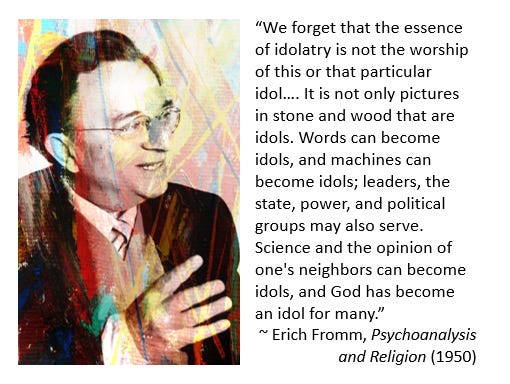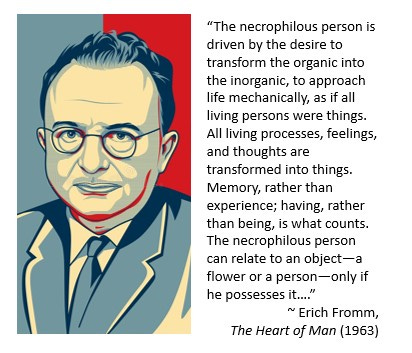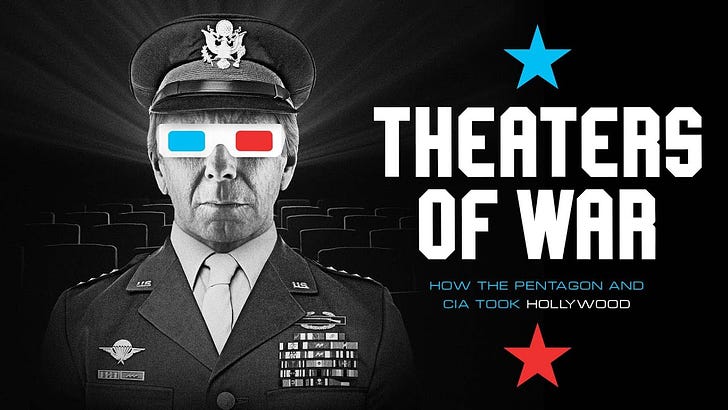Readers of mainstream war reporting are often inundated with opaque in-club jargon, bewildering organizational acronyms, intricate technological details, and mission progress updates abstracted from militarism’s life-and-death consequences. Much of mainstream war reporting fails to give readers a vivid sense of the competing human interests, concerns, and experiences of not only the warring factions but also those within the larger civilian communities. Instead we are given statements that include vacuous terms such as the “national interest,” the “defense budget,” or “collateral damage,” terms that obscure as much as they inform.
Brown University’s Costs of War Project has released an invaluable language guide to facilitate informative, fair-minded, and ethical thinking and communication about warfare. The guide, Words about War Matter: A Language Guide for Discussing War and Foreign Policy, opens with the observation that
“discussions of war and foreign policy have been full of dehumanizing euphemisms, bloodless jargon, little-known government acronyms, and troubling metaphors that hide warfare’s damage.”
The guide advises the media, educators, and wider public to avoid euphemisms for murder, killing, death, and war. Terms like “casualty” and “collateral damage,” we are reminded, obscure the visceral reality that people are being killed or seriously injured, and that some of them are civilians, ordinary non-combatants like most of our loved ones.
They advise us to use “war,” “Pentagon,” or “military” in place of the term “defense.” Whether or not a military budget sustaining hundreds of bases around the world constitutes a “defense budget,” for example, is a matter of dispute rather than an innocuous and indisputable factual statement. Thus the document recommends we describe such budgets as the “military budget” or “Pentagon budget.”
We should also be more selective and intentional about how we describe military actions and those involved or affected by warfare. Instead of “boots on the ground,” we are advised to use a language that reveals rather than conceals the perilous nature of the action being undertaken. More than “boots” walking the ground, we are dealing with soldiers, troops, armed people preparing to do lethal battle with other soldiers, troops, or armed people.
In place of “enhanced interrogation” we are advised to return to the plain and direct term, “torture.” Instead of speaking of “military exercises” we ought to speak of “war maneuvers” or “war exercises.” We should also exercise caution in parroting government representatives’ claim that a particular military action is being taken on behalf of the “national interest.” Again, what constitutes the genuine interests of a nation’s people is often disputed.
The Words about War Matter guide encourages us to rethink the use of terms like “terrorists” and “war on terror.” Rather than using potentially loaded terms we are encouraged to specify the organization or group carrying out the military violence in question. And given the various wars launched in the name of the “War on Terror,” the authors suggest that we are better off discussing the specific wars we have in mind, be it the United States’ military action in Afghanistan, Iraq, Syria, Somalia, Libya, or elsewhere.
We are also encouraged to avoid jargon or military in-group speak for a more direct language grounded in common human experience and understanding.
Hiding Agency
To these recommendations I want to add that we should also strive to avoid “hiding agency.” That is to say, we need to be clearer in attributing responsibility when the individual or organizational agent of a particular action—such as killing civilians—is known.
We tend to “hide agency,” consciously or unconsciously, when we identify with the organizational agent. An example would be how U.S. journalists discussed Iraqi civilian deaths while reporting on the 20th anniversary of the U.S. government's invasion of Iraq. The following statement from an ABC News story typifies the routine hiding of agency: “Reports by groups, such as the nonprofit online database the Iraq Body Count, said that nearly 200,000 Iraqi civilians were killed during those years.”
Contrast that report with ABC News’ coverage of the 20th anniversary of the September 11, 2001 attacks. “Saturday marks the 20th anniversary of the most lethal attack in history on American soil, a commemoration of the 2,977 people killed when 19 terrorists from half a world away hijacked and turned four commercial aircraft into missiles that rain death on New York city, the Pentagon and a field in rural Shanksville, Pennsylvania.” Under the Cost of War’s recommendations, this text would replace “terrorists” with “members of al-Qaeda.” Even with such a change the differences between the ABC News stories is clear: those responsible for the September 11 deaths are recognized, even if imprecisely, while those responsible for the Iraq War deaths go unattributed.
The attempt to dismiss this discrepancy by pointing to many parties responsible for Iraq War deaths would not suffice either. We would be right to ask why such commemorative reporting failed to discuss findings that U.S.-led forces were directly responsible for killing 9,000 of the 24,865 Iraqi civilians killed between March 2003 and March 2005. The U.S. and its allies are also believed to have been responsible for killing 6,616 Iraqi civilians in the first 21 days of the war, from March 20 to April 9, 2003. U.S. forces were likely responsible for nearly 99% of the killings committed by the U.S. led coalition.
Reporters and participants in public discourse interested in honoring the truth and human dignity ought to speak clearly and honestly about not only “what happened”—the effects “of war”—but also “who” caused the effects, who made choices that set the causal change into motion. Good faith reporting can’t be limited to recognizing human agency in those the reporter most closely identifies with who are doing “good” things or those the reporter views as “other” doing “bad” things.
Necrophilia and the Dominant Language of War
It’s important to note that the emergence of this new guidance from the Costs of War Project builds on decades of scholarly and activist efforts. Feminist thinkers have been particularly significant in facilitating a critical interrogation of common sense or culturally dominant ways of thinking, speaking, and operating in society.
In June 1987, Carol Cohn published “Slick ‘ems, Glick ‘ems, Christmas Trees, and Cookie Cutters: Nuclear Language and How We Learned to Pat the Bomb” in the Bulletin of the Atomic Scientists. Cohn, the founding director of the Consortium on Gender, Security and Human Rights at the University of Massachusetts Boston, drew on her direct experience in close proximity to leading U.S. military policy intellectuals in 1984. She offered a frightening glimpse into the way in which strategists thought about nuclear weapons and policy.
The analysts’ intellectual energy was disproportionally concentrated on nuclear machinery rather than the the flesh-and-blood impacts such weapons have made or would make. Cohn explained that these thinkers had invented a world that abstracted the apocalyptic nature of nuclear warfare into a unique “technostrategic” language and manner of thinking.
“There is no reality behind the words. Or, rather, the ‘reality’ they speak of is itself a world of abstractions. Deterrence theory, and much of strategic doctrine, was invented to hold together abstractly, its validity judged by internal logic.”
They deployed what Cohn called “decontextualized rationality,” “sanitized abstraction,” and “mechanisms of distancing and denial.” Such conflation of detachment with objective thinking was criticized, earlier, by Erich Fromm. In Psychoanalysis and Religion (1950) Fromm also challenged us not to forget that words were mere symbols meant to help us make sense of and communicate about a real world of lived human experience and the ultimate reality of love and understanding. The prioritization of words, mechanisms, and bureaucratic conventions over “the highest principles of life, those of love and reason” and the fulfilment of our most human potential exemplified the very essence of “idolatry.”
“We forget that the essence of idolatry is not the worship of this or that particular idol…. It is not only pictures in stone and wood that are idols. Words can become idols, and machines can become idols; leaders, the state, power, and political groups may also serve. Science and the opinion of one's neighbors can become idols, and God has become an idol for many.”
The men in charge of nuclear planning exemplified such idolatry. According to Cohn, these strategists had no place in their language for words like “peace.” This made it impractical to include peace in strategic conversations. Instead, they used a lexicon of acronyms, euphemisms, and (often sexual and, ironically, procreative) metaphors and analogies. All of which obscured the humanistic and existential weight of their planning.
The men spoke excitedly about opportunities to “pat missiles” without equal consideration of the human consequences wrought by firing missiles. Cohn described the men’s language as
“abstract, sanitized, full of euphemisms; language that is sexy and fun to use; paradigms whose referent is weapons; imagery that domesticates and deflates the force of mass destruction; imagery that reverses sentient and nonsentient matter, that conflates birth and death, destruction and creation—all of these are part of what makes it possible to be radically removed from the reality of what one is talking about, and from the realities one is creating through the discourse.”
In her 1994 essay, "Women and Militarism," feminist peace activist Colleen Burke explored the relationship between patriarchy, militarism, and social conceptions of manhood and womanhood. She argued that dominant cultural expressions concerning warfare sanitized its bloody and destructive consequences. Referencing Cohn’s work, Burke explained the euphemistic if not outright Orwellian depiction of warfare.
“Missiles are called ‘peacekeepers,’ civilian deaths become ‘collateral damage,’ and penetrating weapons’ hit ‘virgin targets.’ Militaristic terms have pervaded the English language, and are especially evident in sports, with teams ‘decimating’ and ‘annihilating’ each other. While militaristic language and war movies may seem harmless, they are symptoms of a society which minimizes the ramifications of military activities and institutionalized violence. This acceptance of coercion and physical force as primary methods for solving problems can extend to violence in the home and in relationships.”
Theses observation return us to Fromm’s characterization, in The Heart of Man (1964), of the contrast between the biophiliac and necrophiliac personalities. The necrophilous orientation is centered on a love of force and mechanization, both of which served to generate control. Fromm wrote,
“The necrophilous person is driven by the desire to transform the organic into the inorganic, to approach life mechanically, as if all living persons were things. All living processes, feelings, and thoughts are transformed into things. Memory, rather than experience; having, rather than being, is what counts. The necrophilous person can relate to an object—a flower or a person—only if he possesses it….”
The biophilous person is centered on love of life: the organic and dynamic, that which defies mechanization and permanently possession. Fromm wrote,
“The person who fully loves life is attracted by the process of life and growth in all spheres. He prefers to construct rather than to retain. He is capable of wondering, and he prefers to see something new to the security of finding confirmation of the old. He loves the adventure of living more than he does certainty. His approach to life is functional rather than mechanical. He sees the whole rather than only the parts, structure rather than summations. He wants to mold and to influence by love, reason, by his example; not by force, by cutting things apart, by the bureaucratic manner of administering people as if they were things. He enjoys life and all its manifestations rather than mere excitement.”
When we learn to speak of missiles, bombs, killing, and war in the visceral, honest, and existentially grounded manner it deserves, we cease to be party to fascistic and inhuman ideologies that Fromm called “necrophilia.” We ally ourselves with the love of life—with biophilia—as we learn to see and discuss the underlying realities of war obscured by unrealistic abstractions that trivialize life. Such an approach demands that we use the powers of reason and compassion to see and linguistically recognize the many experiences, standpoints, concerns, sufferings, and interests pushed to the margins when war is discussed.
Civil Discourse and Critical Consciousness
The authors of the Words about War Matter guide invite us to exchange haughty correction of others for polite and respectful reflection and dialogue about our word choices around war.
“Shaming people's language use is unhelpful and tends to cause resistance and division. Instead, share alternatives politely, taking care to explain why particular words, terms, or phrases are unhelpful.”
Few of us will read the guide and not find fault in at least some of our ordinary ways of thinking and speaking about war. After all, those of us living in the United States have been acculturated to experience warfare as a proverbial national past time; something difficult and requiring sacrifice but also exfiltrating, purposeful, and life-affirming. The abstraction of war—its detachment from reality, from the cries of terror, moral ambiguity, numbing depression, and blood-splattered flesh—has been facilitated by Hollywood’s glamorized portrayals of war. As I’ve documented, these portrayals that have been co-produced by an active and vigilant Pentagon entertainment office.
Most of us will find that the guide offers suggestions we have not thought of or have not yet fully woven into our ordinary way of speaking and writing. Few citizens of the U.S., in particular, are fully conscious of the extent of the intellectual and moral blind-spots generated by their unique privilege as Americans.
It’s likely that some will insist the guide aims to “police” our language or to make it less “offensive.” The opposite is true. The recommendations in the guide aid is in grounding our language in what is real: human beings, life and death, ecological systems, and the like. They also help us reduce unethical and irrational bias in our communication.
The biases we can eliminate include ethnic-nationalistic biases that have us attribute the killing of the victims of September 11, 2001 to “terrorists”—more specifically, al-Qaeda—but fail to attribute the killing of civilians during the initial bombardment of Baghdad to the U.S. government.
The provided guidance also helps us eliminate the class bias woven into homogenizing terms like “national interest” are used. We can more consistently call into question the presumption that the “interest” of our political leaders or those with disproportionate influence over our political decisions is the same “interest” as ordinary Americans.
By contemplating and discussing the words we use to think about warfare, we deepen our critical consciousness around military policy and its impact on our lives, the lives of others, and our world. Thinking critically about what is hidden in “national interests” and “collateral damage” deepens and enriches our understanding of what is true and what is right. As such the Words About War Matter guide is invaluable resource for educators, journalists, community organizers, parents, and all civically engaged participants in our democracy.
If you enjoyed this post please share it with others and like it by clicking the heart icon. Be sure to subscribe if you haven’t already.
Invite Dr. Nall to Speak
Dr. Nall delivers energetic live presentations and engaging workshops on the subjects featured in Humanities in Revolt. Those interested in booking a workshop or talk can get in touch through Facebook or by leaving a comment.











